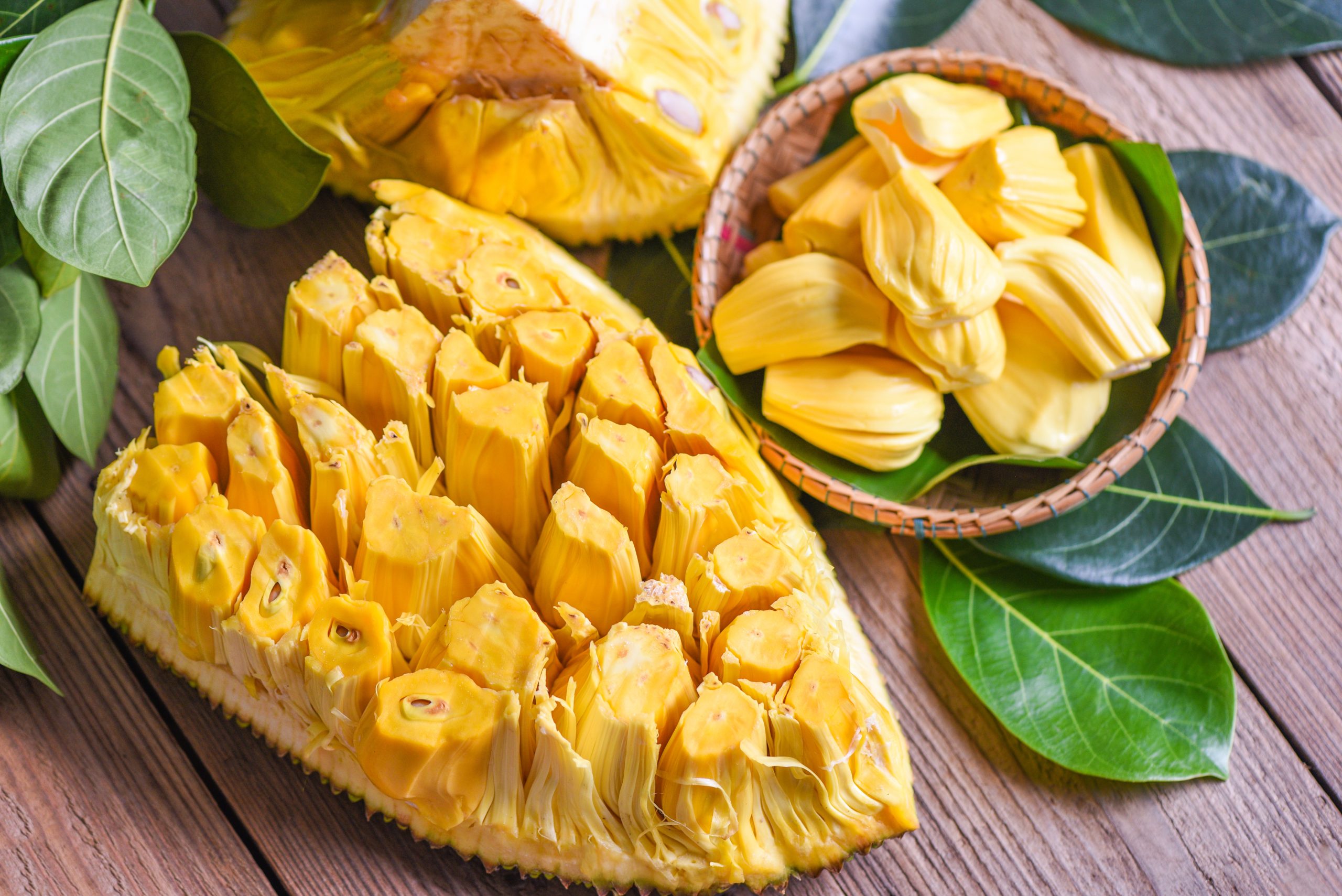Jackfruit, the giant tropical fruit that can weigh up to 100 pounds, is revolutionizing vegan cuisine with its meat-like texture and remarkable ability to absorb flavors, making it the perfect sustainable solution for those seeking to reduce their environmental footprint without sacrificing taste.
At a Glance
- Jackfruit has a fibrous texture similar to pulled pork or shredded chicken, making it an ideal meat substitute for vegan dishes
- This nutritional powerhouse contains more protein than most fruits and is rich in fiber, vitamins C and B6, potassium, and antioxidants
- Unripe jackfruit has a neutral taste that absorbs flavors well, while ripe jackfruit is naturally sweet and used in desserts
- The global market for jackfruit exceeded $311 million in 2022 and continues to grow as more people discover its versatility
- Jackfruit is environmentally friendly, requiring minimal water and fertilizer compared to animal agriculture
The Versatile Giant of Plant-Based Cooking
Jackfruit has been a staple in Southeast Asian and Indian cuisine for centuries, but it’s only recently captured the attention of Western cooks looking for plant-based alternatives. This remarkable fruit is the largest tree-borne fruit in the world, with a single jackfruit weighing up to 100 pounds. When young and unripe, jackfruit has a neutral, somewhat starchy flavor and a stringy texture that bears an uncanny resemblance to shredded meat when cooked. This makes it perfect for dishes traditionally made with pulled pork, shredded chicken, or other stringy meats.
Unlike many processed meat alternatives, jackfruit is minimally processed and contains no artificial ingredients. It’s now readily available in most grocery stores like Whole Foods and Trader Joe’s, typically found canned in water or brine for savory applications. For those new to jackfruit, canned varieties offer convenience—simply drain, rinse, and cook with your favorite sauce. The fibrous texture can be easily shredded with a fork, creating that meat-like consistency that makes it so popular.
Nutritional Benefits for Healthy Aging
For health-conscious individuals over 40, jackfruit offers impressive nutritional benefits that support overall wellness. Unlike many fruits that are primarily carbohydrates, jackfruit contains a notable amount of protein—making it a more satiating option. It’s also rich in dietary fiber, which supports digestive health and helps maintain healthy cholesterol levels. The fiber content can help regulate blood sugar levels, an important consideration for those monitoring their glucose levels.
Jackfruit is packed with essential vitamins and minerals that become increasingly important as we age. It contains significant amounts of vitamin C for immune function, vitamin B6 for brain health, potassium for heart health, and riboflavin and folic acid for energy production. Perhaps most impressive is its rich array of phytochemicals, flavonoids, and lignans—powerful antioxidants that help reduce inflammation and may offer protection against certain types of cancer and age-related diseases.
Cooking with Jackfruit: Tips for Success
Many first-time jackfruit users make the mistake of not properly preparing it, which can result in disappointing flavor and texture. When using canned jackfruit in brine or water (recommended for savory dishes), thoroughly drain and rinse it to remove the briny taste. Then, squeeze out excess moisture to help the jackfruit better absorb your seasonings. For the best texture, remove the tough core pieces and use only the stringy portions for “pulled” preparations.
Jackfruit works best when given time to marinate and absorb flavors. Since it doesn’t contain fat like meat does, consider adding a bit of oil to your preparations to enhance richness and mouthfeel. Popular jackfruit dishes include barbecue “pulled pork” sandwiches, tacos, curries, and stir-fries. For those with a sweet tooth, ripe jackfruit has a naturally sweet flavor often described as a combination of pineapple, banana, and mango, making it perfect for desserts and smoothies.
Environmental Benefits for Conscious Consumers
Beyond its culinary versatility and nutritional benefits, jackfruit represents a sustainable food choice. Jackfruit trees are remarkably productive, with a single tree capable of producing up to 200 fruits annually. They require minimal water and fertilizer compared to livestock production, making jackfruit an environmentally friendly protein alternative. As climate change concerns grow, incorporating more plant-based options like jackfruit into our diets represents a simple way to reduce our environmental footprint.
The rising popularity of jackfruit reflects a broader shift toward plant-forward eating that prioritizes both personal health and planetary wellbeing. With the global jackfruit market exceeding $311 million in 2022 and continuing to grow, this once-obscure tropical fruit has firmly established itself as a staple in the plant-based movement. For those looking to reduce meat consumption without sacrificing texture and flavor, jackfruit offers a natural, minimally processed alternative that satisfies both culinary cravings and nutritional needs.
Sources:
https://wellvegan.com/these-vegan-jackfruit-recipes-will-blow-your-mind
https://vegnews.com/guide-to-jackfruit-vegan-recipes








